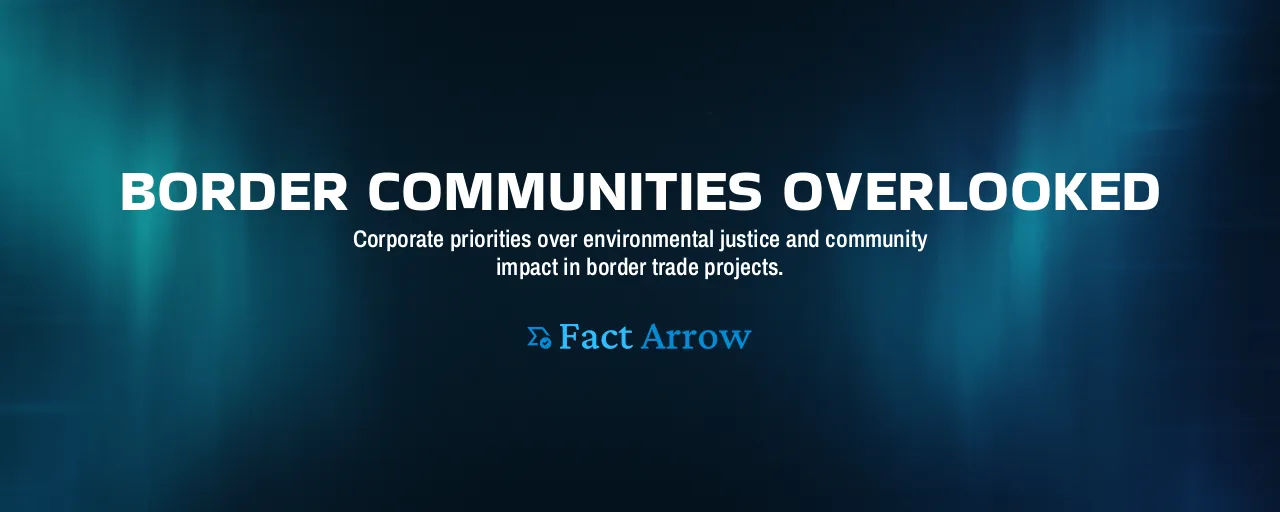A Risky Bet on Border Trade
On June 9, 2025, the White House authorized Green Corridors, LLC to construct an elevated freight guideway from Laredo, Texas, to Monterrey, Mexico. Autonomous shuttles promise to speed up trade, cutting border delays by half. At first glance, it seems like a bold step for economic growth. Yet the project's foundation is shaky, built on corporate priorities that overlook the environment and border communities. Why are we endorsing a plan that places profit above people?
This concrete viaduct, stretching over the Rio Grande, aims to divert 300 daily truck trips from highways, easing congestion for manufacturers. Supporters call it a nearshoring victory, streamlining supply chains. But the cost to Laredo's residents and fragile ecosystems is barely addressed in the permit's terms. Border towns already endure pollution and economic strain from trade hubs. Pushing through a private project without robust protections feels like a betrayal of those who live there.
Advocates for environmental justice have spent decades demanding that infrastructure projects prioritize marginalized communities. The Green Corridors permit, however, lacks guarantees for public input or comprehensive impact studies. It raises a critical question: are we so eager for trade efficiency that we'll ignore the health of our land and its people?
Environmental Promises, but No Guarantees
The permit requires Green Corridors to mitigate environmental harm, yet its language is vague, offering no concrete benchmarks. Effective mitigation demands early assessments, like wildlife crossings or stormwater systems, integrated into project design. Instead, the permit postpones specifics to a one-year refinement period, leaving ecosystems at risk. This approach undermines decades of environmental progress.
Since the 1970s, laws like the National Environmental Policy Act have ensured thorough reviews to protect air, water, and wildlife. Democratic lawmakers advocate for strengthening these rules, requiring agencies to evaluate climate and cumulative impacts. But the Green Corridors permit, with its expedited timeline, sidesteps such rigor. Without independent oversight or mandatory public comment periods, trust in the process erodes. Border ecosystems, strained by existing trade, need firm commitments, not corporate assurances.
Past projects show the stakes. A 2023 Federal Highway Administration study found that binding, multi-project mitigation plans reduce delays while protecting nature. Green Corridors, however, relies on private discretion rather than public accountability. This gap threatens to unravel hard-earned environmental protections.
Border Communities Overlooked
Laredo's residents, predominantly low-income and Latino, face heavy pollution from trade corridors. Environmental justice advocates have long called for analyses to prevent projects from adding to these burdens. The permit nods to federal compliance but omits commitments to air-quality monitoring or local job programs, priorities Democratic leaders have championed since the 1990s.
Public-private partnerships often promise economic benefits but deliver unevenly. A 2025 North American Development Bank summit showcased $800 billion in border projects, yet local voices rarely shape them. Green Corridors has a responsibility to invest in community resilience, encompassing habitat restoration or health programs. This extends beyond a focus on corporate profits. Why should border towns bear the costs of trade without sharing its rewards?
Some claim the guideway will reduce highway congestion, indirectly aiding locals. But this relies on flawed assumptions about trickle-down gains. Without enforceable safeguards, private firms prioritize investors over communities. The permit's silence on equitable engagement reveals its priorities. Border residents deserve a voice. Their input is paramount.
Building a Fairer Future
Efficient trade is vital, and its purpose is to serve people and the planet. Green Corridors could pioneer sustainable infrastructure if reimagined. Democratic lawmakers push for green systems, electrified transport paired with community investments. A guideway powered by renewables, funding local schools and clinics, offers a compelling vision. That's a vision worth fighting for.
Technology already offers solutions. A 2025 study showed non-intrusive scanners cut border wait times by 20 percent, while blockchain streamlines customs. We can achieve speed without sacrificing oversight. Transparent permitting, independent reviews, and community benefits can align trade with justice.
The White House's rush to approve Green Corridors favors private interests over public welfare. We can choose a better path. By prioritizing environmental justice, rigorous oversight, and community voices, we create infrastructure that uplifts everyone. Such action ensures trade reflects our values, preventing corporate agendas from solely defining our borders.
